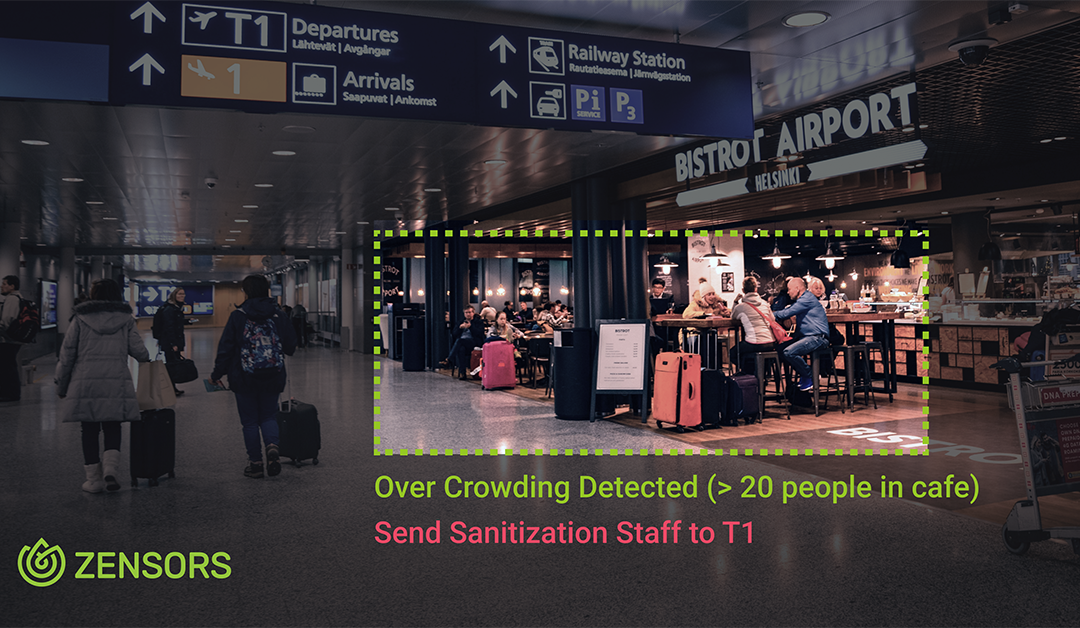CMU Spinoff Offers AI Platform To Help Governments Address COVID-19
Byron SpiceThursday, April 2, 2020Print this page.

People who manage public facilities and spaces during the COVID-19 pandemic have lots of new questions that artificial intelligence and computer vision technology could help answer, such as:
- Are people maintaining safe social distances?
- What surfaces are people touching that may need cleaning?
- How many people are wearing face masks?
Zensors, a two-year-old spinoff of Carnegie Mellon University's Human-Computer Interaction Institute, is responding to this need by making its computer vision platform available for free to governments, airports and essential businesses, and is further inviting machine learning researchers to collaborate on using the data toward better disease management.
Anuraag Jain, an HCII alumnus and inventor of the Zensors technology, said airports and other potential clients contacted the company as the COVID-19 threat grew, seeking assistance in using computer vision to help them manage their facilities.
"Rather than profiting off them, we thought we would give our help for free," Jain said, at least through June 1. The company, based in Pittsburgh and San Francisco, provides a platform that can use a variety of cameras, including existing security cameras, as sensing devices. The technology was developed by the Future Interfaces Group, led by Chris Harrison, an assistant professor in the HCII.
Machine learning technology in the platform enables the cameras to extract data from images, such as the number of people occupying a space, or the density and number of people standing in line.
"We track activity levels, not individuals. If the police used Zensors, they could not track individuals because it's just not possible with our platform."
Prior to the rise of the novel coronavirus, Zensors had a number of large clients, such as airports and city governments, Jain said.
"In the past, a lot of people looked at the product as something that might help improve their business operations," he added. "Now, the lens is somewhat different. We look at the COVID-19 pandemic as the biggest challenge facing governments today: how do you close a city? How do you enforce a closure when your personnel are already stretched? We think our platform can be part of the answer."
Byron Spice | 412-268-9068 | bspice@cs.cmu.edu<br>Virginia Alvino Young | 412-268-8356 | vay@cmu.edu
